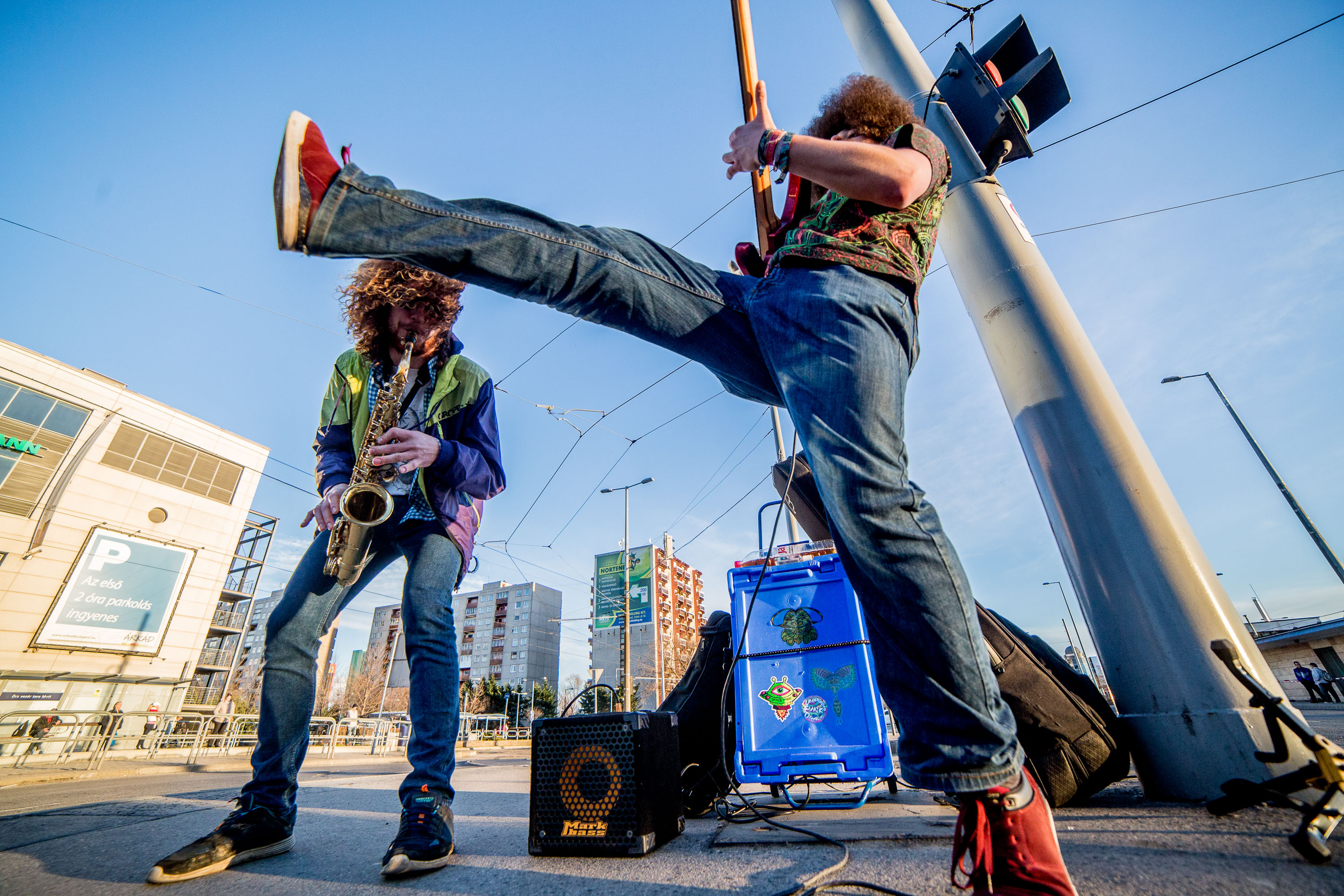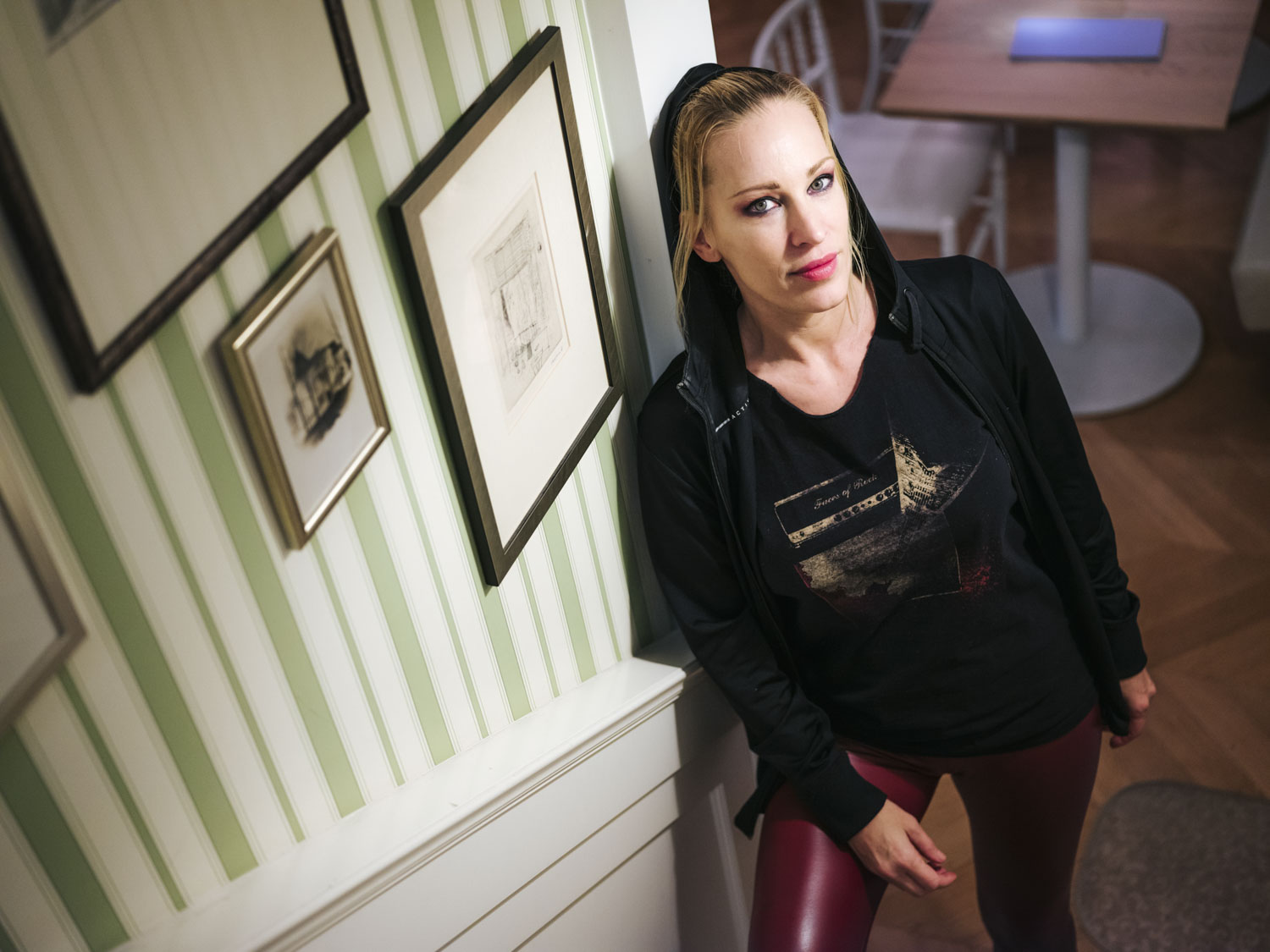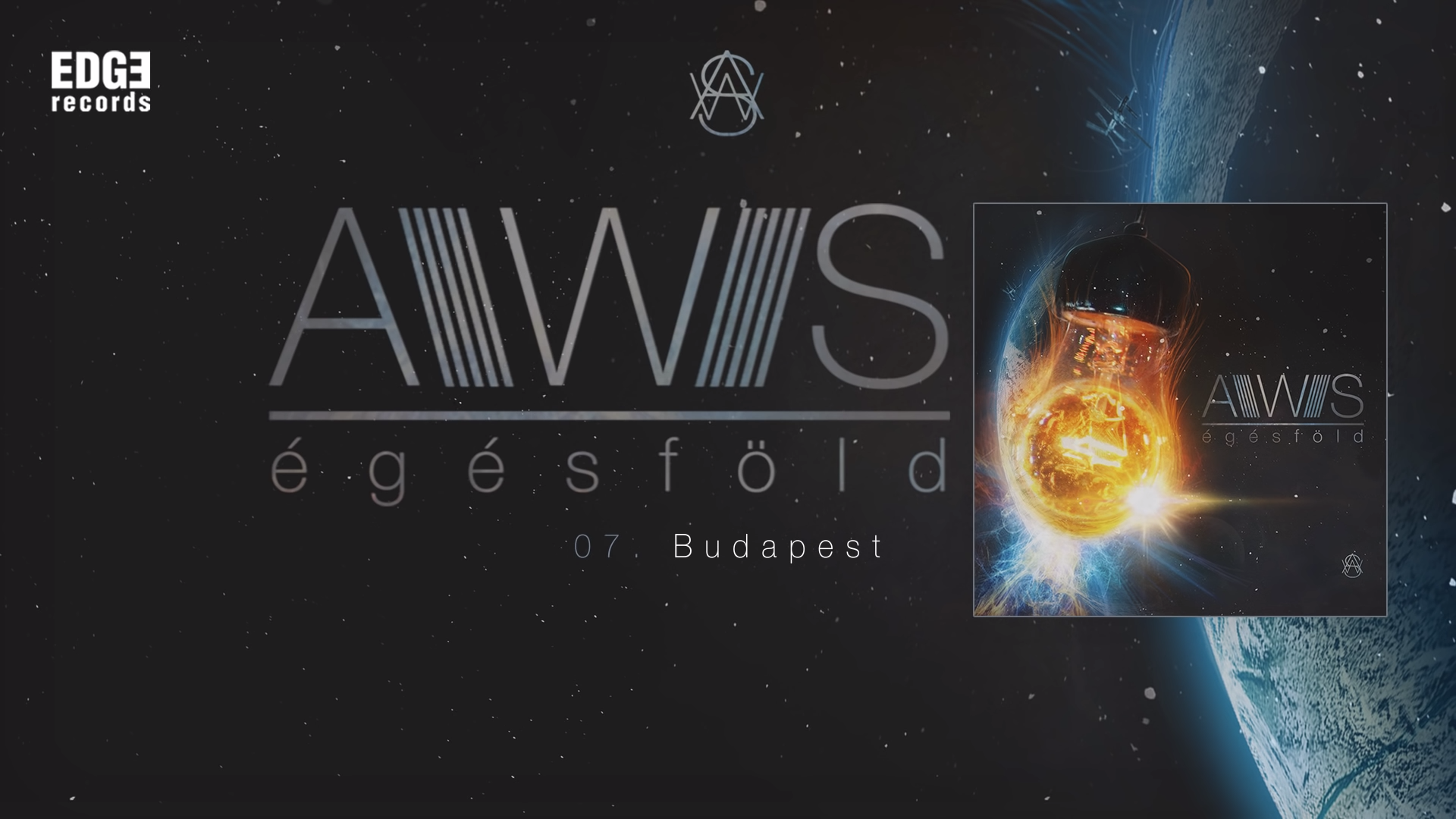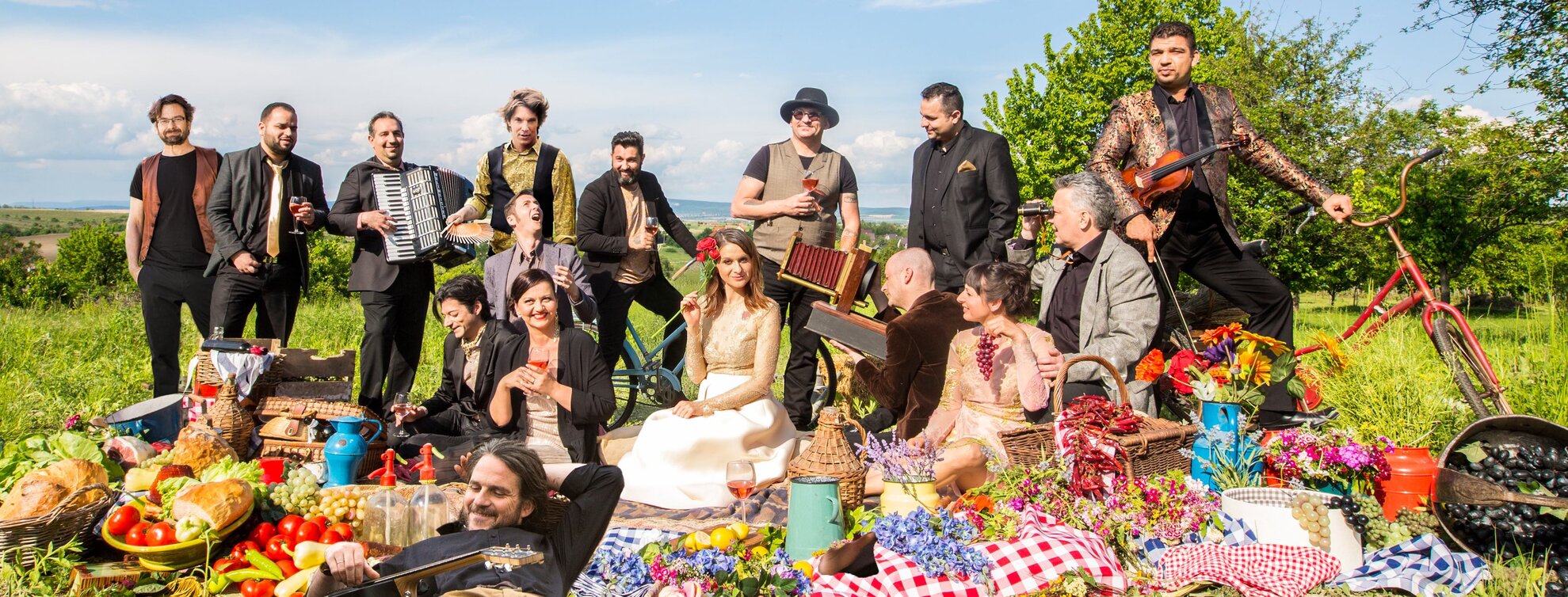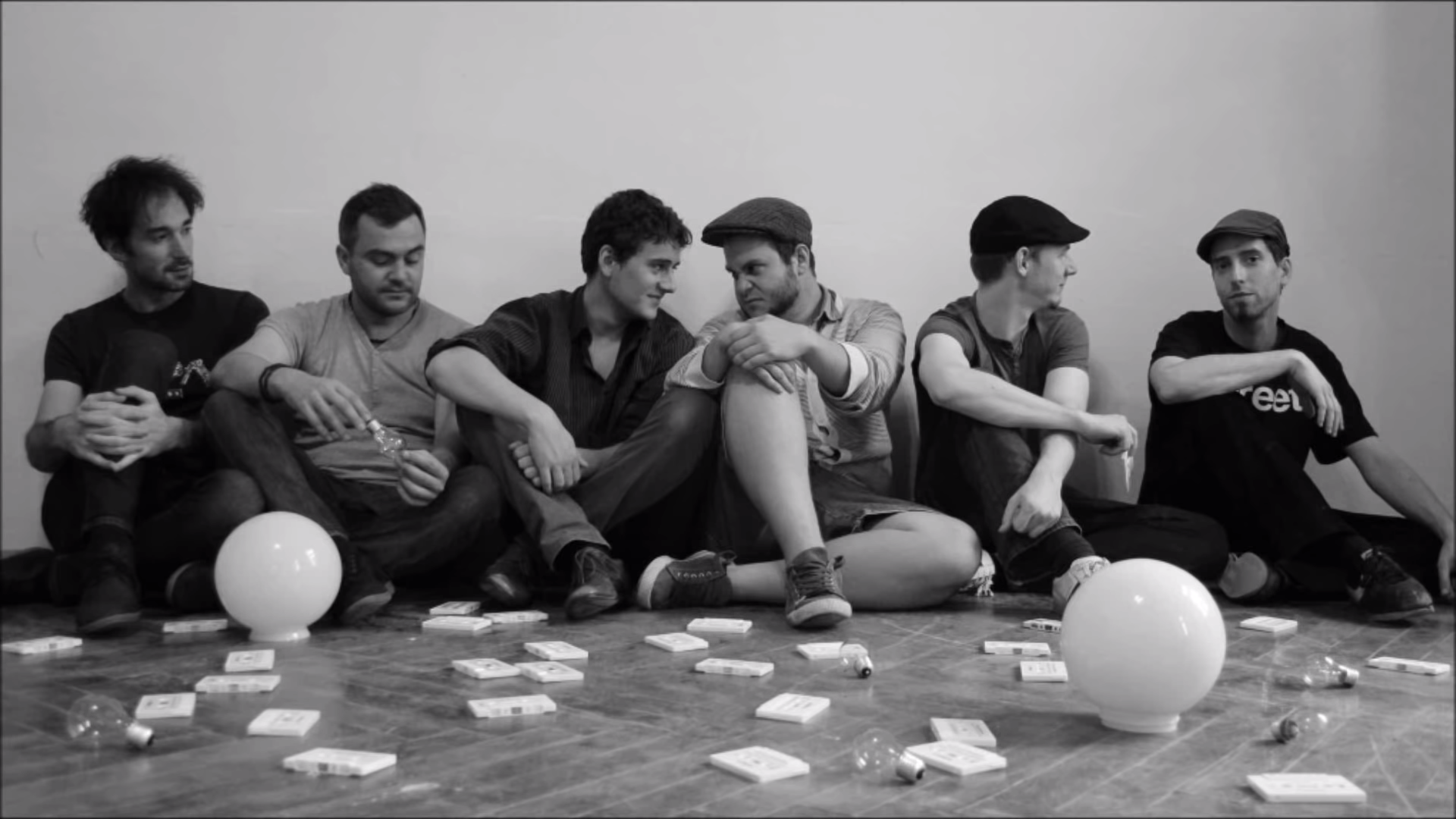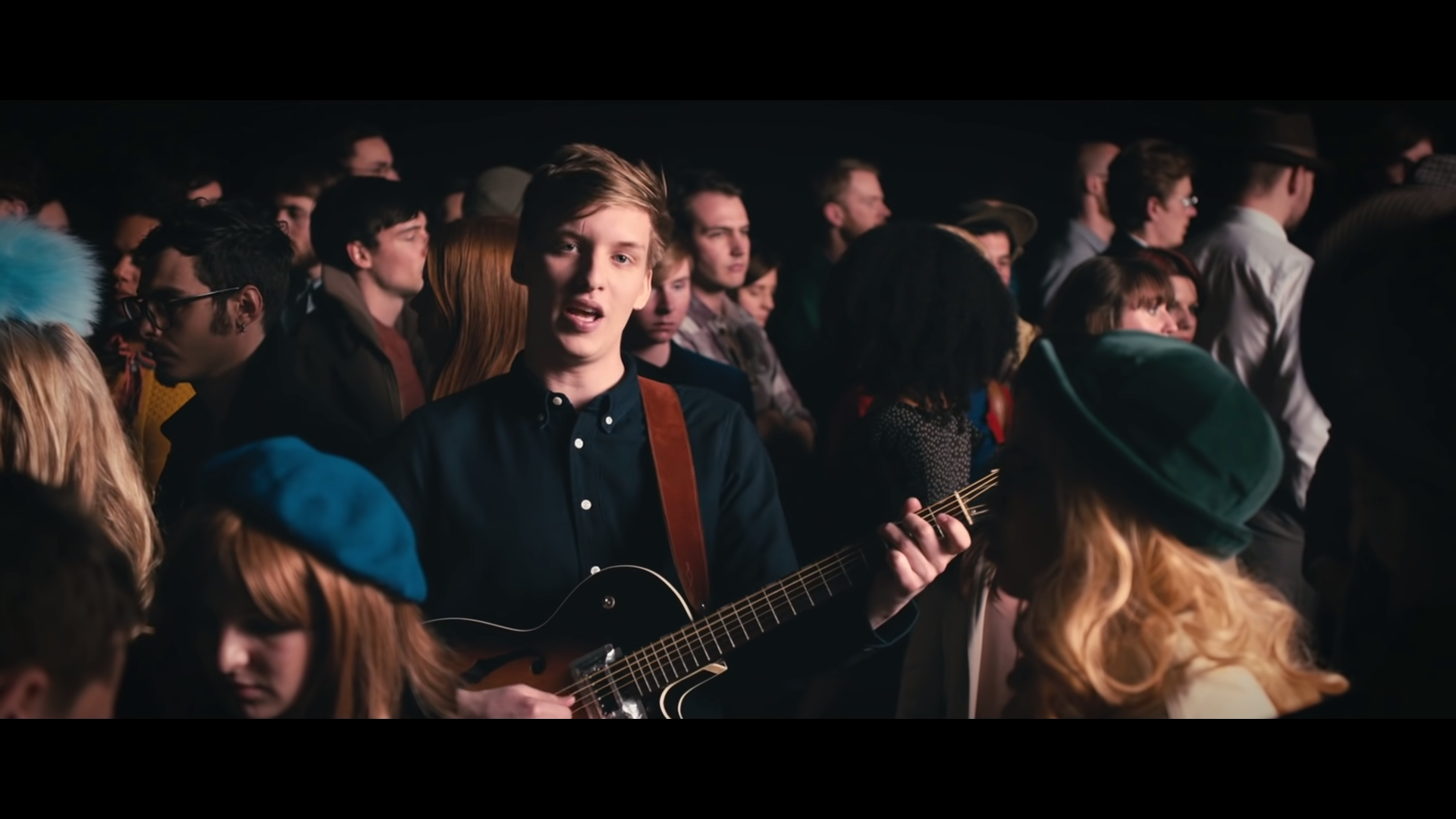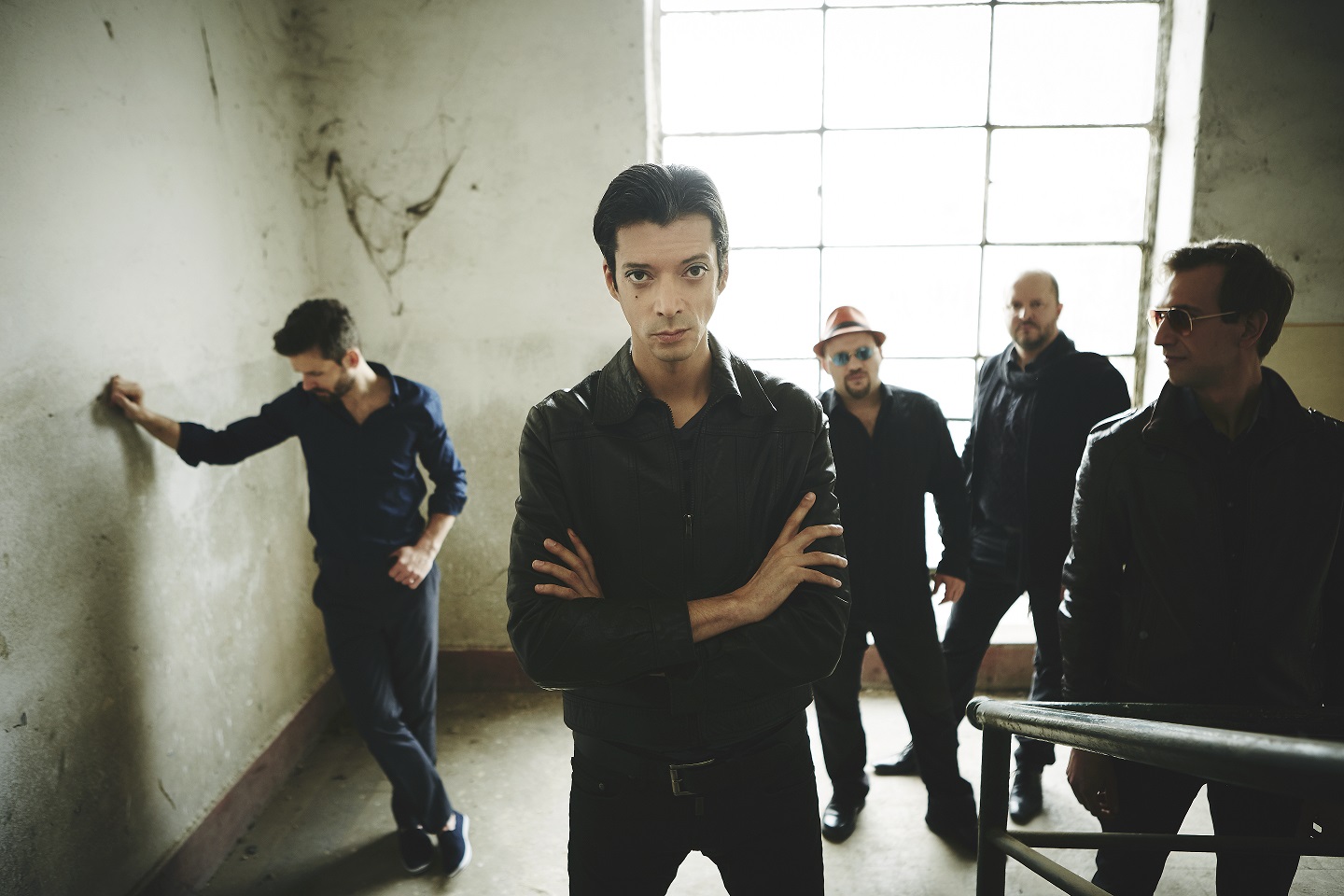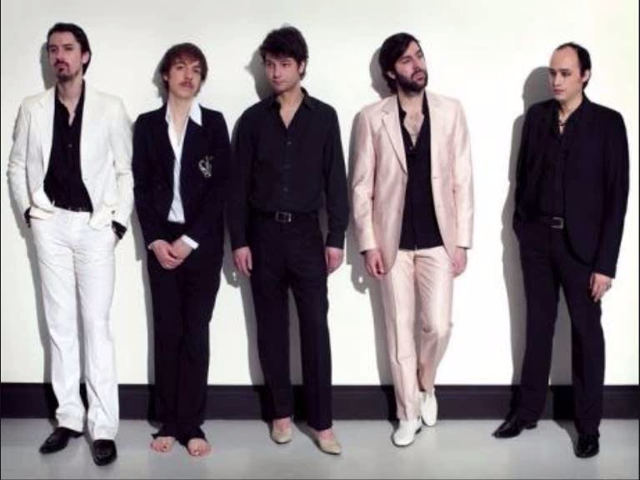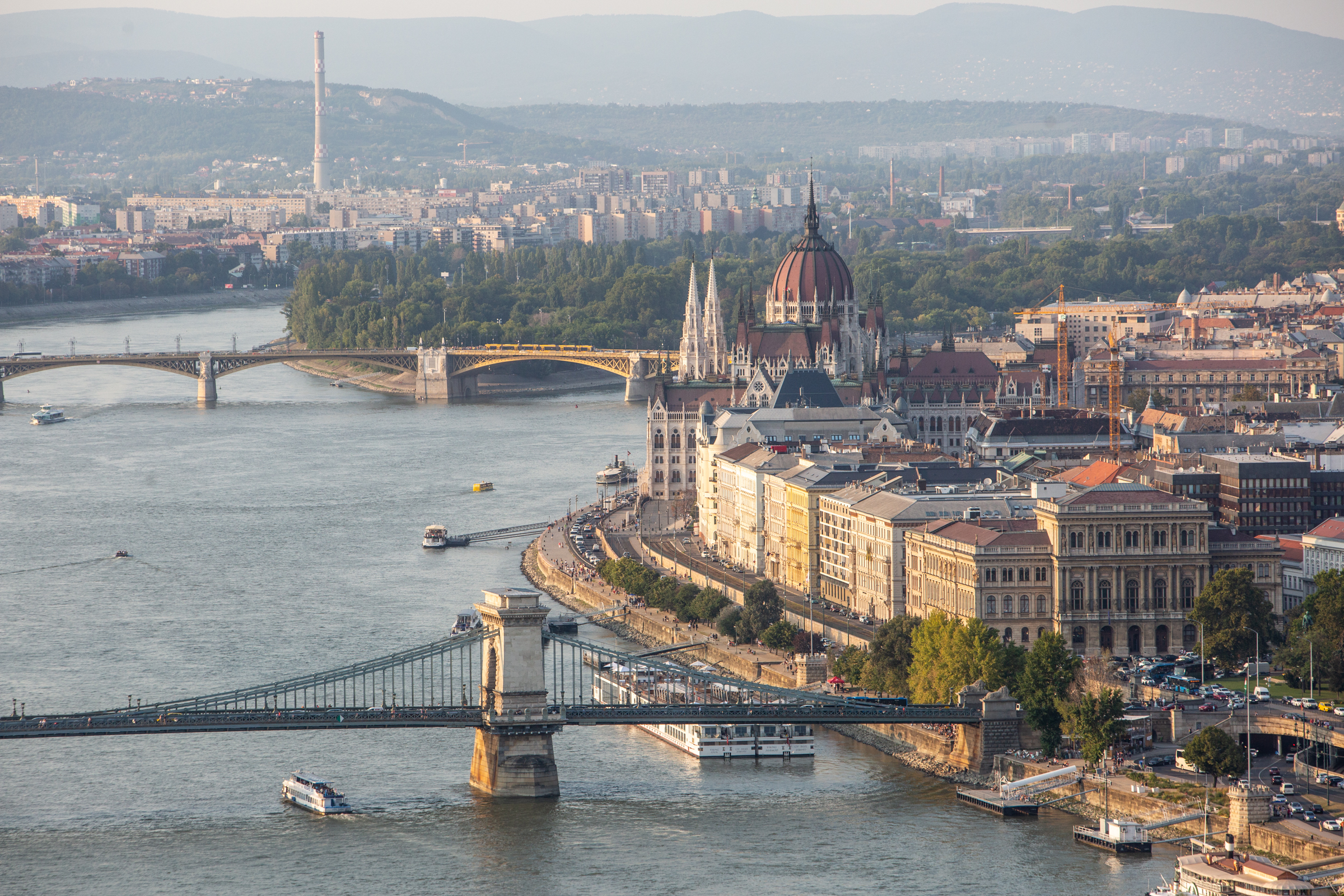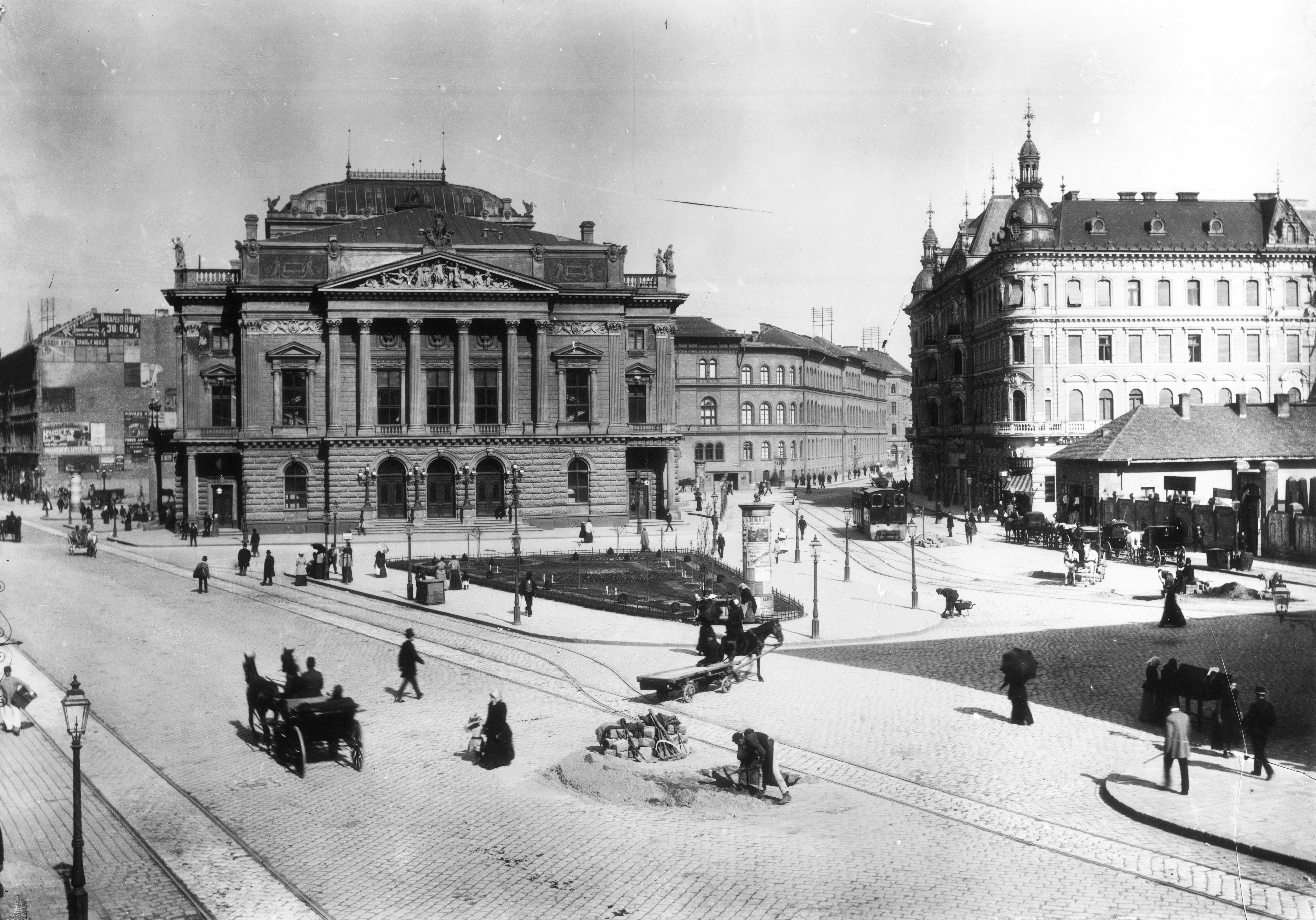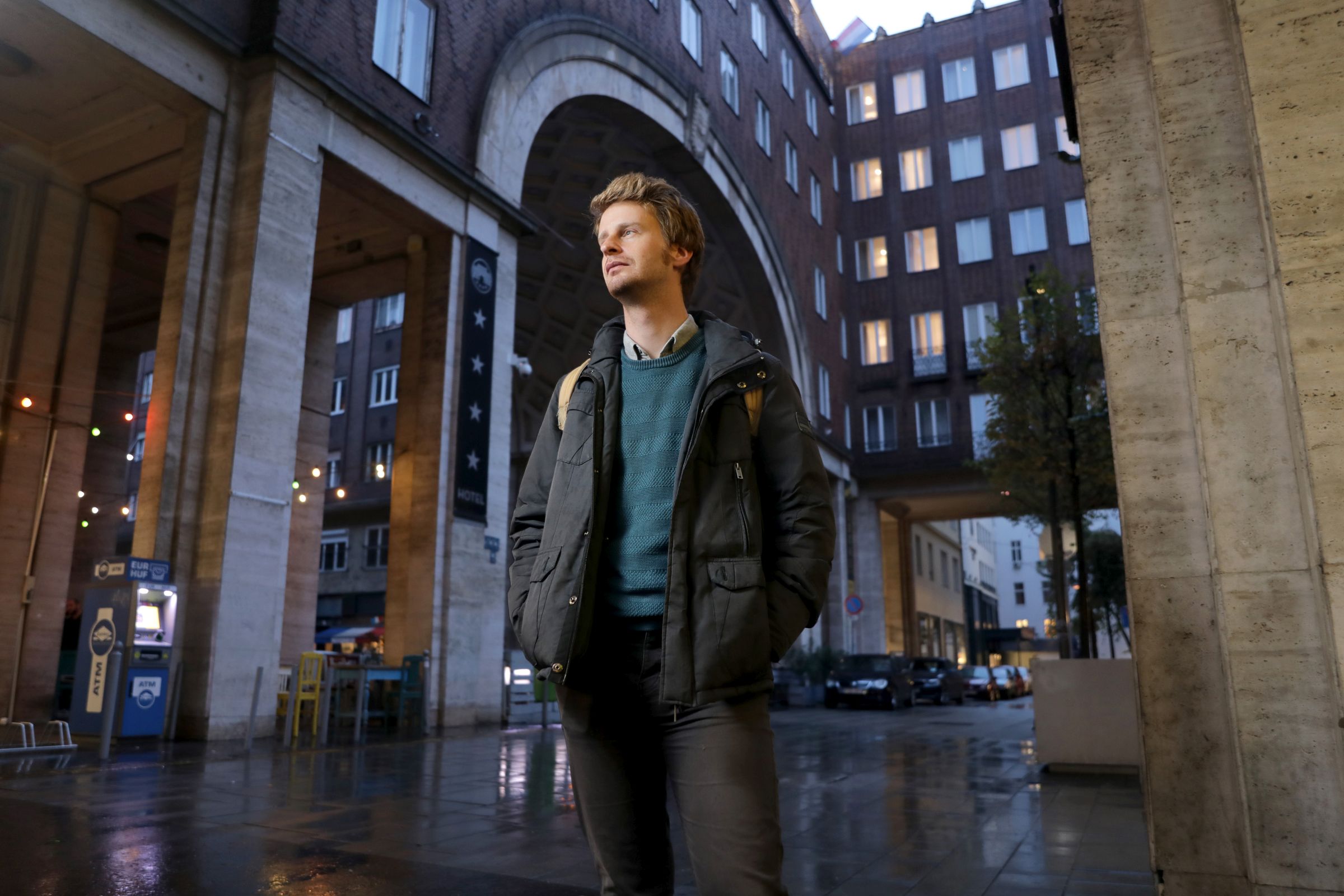Chicago had Sinatra, LA had Morrison but Budapest has been the muse for many. Celebrated in song from the orfeums of the 1920s to the A38 ship of today, Hungary’s capital has been inspiring musicians to extol its charms on stage, screen and in the studio. And not just Hungarian tunesmiths – Parisians electros Poni Hoax loved the ‘iced games of chess’ and for Brit troubadour George Ezra, this city was his ‘golden grand piano’. Here are our ten favourites. Take a listen!
1/10
Anna and the Barbies: Négyeshatos
As this selection is, essentially, ten songs about Hungary, you’re going
to have to be prepared for a big dollop of melancholy. Successful actress Anna
Pásztor sings a hymn to a tram – not just any tram, mind you, but one of
the world’s busiest, the 4/6 (Négyeshatos) and embarks on a journey of internal
disquiet as she glides along the Körút. More social observation than full-on
Garland trolley clang, it does capture a certain mood that many feel as the
façades of Pest go past, and passengers come and go in an urban blur.
2/10
AWS: Budapest
Songwriter and band frontman Örs Siklósi passed away a few days ago at
the age of 29 – the most recent screening of popular talent show A Dal was
dedicated to his memory, he and his group having won the contest in 2018. In
that context, it’s almost incongruous to suggest just how vivacious this modern
metal band were, schoolmates from Budakeszi tearing up stages around Hungary
and beyond. They even did Eurovision. They were a bunch of fun, too, their
original name being Ants Without Slippers – abbreviated to AWS, ‘Ah-Vey-Ess’ to
Hungarians. This particular tune, from their second album Égésföld, underscores
a love-hate relationship with the city: “The century might be new, but it hurts
just the same, and the same time passes, which once elapsed for everyone”. RIP
Örs Siklósi.
3/10
Budapest Bár: Nékem csak Budapest kell
As the stock-in-trade of Budapest Bár is the bar tunes of Budapest – chanson-like Gypsy swing in 1930s’ garb – it would have been odd not to have included any of their numbers here. And yet, for all singer Juci Németh’s sprightly contemporary interpretation of this paean to our fair city (‘I Only Need Budapest!’), it’s not a patch on the 1961 original. A highlight of Frigyes Bán’s otherwise hokey musical romance Napfény a jégen (‘Sunlight on Ice’), it was memorably performed by Irén Psota, Mária Mezei and Manyi Kiss, two of them in absurdly silly hats, while being stuck in a lift. The rising sense of frustration at being so close to the big city and yet so far is palpable. The girls then push that lift button and go for it, tap dancing in stilettos and simply fizzing with excitement – “We rush to ten places a day, Then dance just that little bit more every night, it’s never enough!’ (The plot involves three dancers in a winter revue, male rivals and sneaky suitors. Jealousy on Ice may have been the better title.) A classic case of a timeless song lost in a middling movie.
4/10
Elefánt: Budapesti lányok
Ah, that eternal topic, Budapest girls! This all-male five-piece from
Szombathely came up to the capital in 2011 and started treading the boards
almost straight away, so they may be singing about the opposite sex from bitter
experience. This jolly ditty is taken from their debut LP, Vérkeringő, and is seen here played live at Budapest’s prime live venue, the A38. Describing
untrustworthy girls freezing in their tiny rooms, the song comes to the conclusion that Budapest is just like the girls living in it – all will be
yours if you let yourself become theirs.
5/10
George Ezra: Budapest
The one stand-out, blue-chip global hit called Budapest wasn’t written here at all – UK singer George Ezra was hungover in Malmö when he composed it, dreaming about a Budapest he couldn’t visit because he had missed his train in the morning fuzz. Still, perhaps like Casablanca for Michael Curtiz, the very thought of the place inspired him to create a masterpiece. It also launched his career, this moody/catchy number dominating the airwaves in 2014. ‘My house in Budapest… golden grand piano… my hidden treasure chest’, intones this handsome chap from Hertford, his voice all Freewheelin’-era Dylan. The video’s cute, too, the Liverpool scarf perhaps hinting at stag parties amid the arty touches. A number one smash in New Zealand, a flop at number 19 in Hungary.
6/10
Frenk: Blaha
Opening his 2012 solo LP minden ellen (‘Against Everything’) with this
typically rocky tune, Frenk (aka Gábor Torma) was reverting to type as the bare-torso’d,
leather-jacketed, stick-thin malcontent in the Nick Kent mould. One of
Budapest’s main crossing points, Blaha (Blaha Lujza tér) is the gateway to the
city’s oversubscribed bar zone, back then crowned with the legendary Corvintető rooftop club gazing down from
the roof of a Socialist-era department store. Before you reached any of that,
however, you had to cross the edgy underpass of dubious street creatures, which
is what this song is partly about. A kid from industrial Dunaújváros, a drummer
in his uncle’s band at the age of eight, Frenk has laid down the beat with the best
of them, Hyperkarma, Quimby and Kispál, but seems most at home acting out Iggy’s
Passenger in Budapest.
7/10
Poni Hoax: Budapest
It’s not clear quite why four French intellectuals from the Conservatoire intent on forming an experimental jazz quartet changed direction after crossing paths with Cambodia-born Nicolas Ker – some say they met in a bar, others reckon they placed an ad in the music press – but it sure worked a treat. Key to this big club hit of 2006 is the ghostly vocal of Greek singer Olga Kouklaki, then on the same indie label of Tigersushi, who subsequently put out 5,000 copies of this debut EP. The detail’s great, too: ‘An iced game of chess in Budapest’, ‘cave accordions, they taste my flesh’ and ‘Tokaj running in my veins’. Obviously someone did their homework before putting pen to paper. It felt retro then, it certainly feels retro now, but a little electropop with a catchy keyboard refrain always gets them out on the dance floor.
8/10
Róbert Rátonyi: Budapest, Budapest, te csodás
Budapest, Budapest, so good they named it twice! As a musical genre, operetta
can only really be tolerated in situ, and you can just see the toothy Róbert Rátonyi
prancing across the stage of the Operettszínház in the heart of Budapest’s
Broadway, Nagymező utca, amid the post-war
gloom of 1947. Rigó Jancsi was one of scores of productions penned by the
prolific Szabolcs Fényes, and not one of his best – but the evergreen duo of
Mihály Szécsén and Jenő Pártos still capture the timeless beauty of
Hungary’s capital (‘How many bridges embrace the Danube? Budapest, Budapest,
wonderful you!’). And all in 70 seconds flat! An old trouper, Rátonyi went on
to play Eliza Doolittle’s father in the Hungarian version of My Fair Lady and
provide the Magyar voice for Dick Van Dyke’s risible Cockney accent in Mary
Poppins.
9/10
Miklós Sebő: Hétre ma várom a Nemzetinél
A pre-war take on Blaha Lujza tér, ‘Waiting at the National for Seven’ refers to the National Theatre that once stood here. A popular stage performer there, Lujza Blaha had the honour of having the square named after her in her lifetime. At the time, Miklós Sebő was living a block away at Rákóczi út 60. Born Miklós Salzberger in 1899, singer Sebő was signed to Berlin Parlophone and almost certainly would have recorded this in the German capital, along with Fritz Domina and his Dance Orchestra. Sebő appeared at many of Budapest’s classic cabarets and orfeums – the Intim, the Faun, the Bonbonnière and the Royal at today’s Corinthia Hotel – and, uncredited, provided the title song for the revered film Meseautó. This particular tune is taken from the 1927 operetta Mesék az írógépről, ‘Tales from the Typewriter’ itself based on the 1905 novel of the same name by István Szomaházy, a newspaper man through and through. But the lovely lyrical detail is the work of long-term collaborators, Lajos Lajtai and István Békeffi, and it’s Budapest through and through – the number 6 tram, the Gypsy musicians at EMKE, the advertising pillars of yore. The film version of Mesék was made by Sir Alexander Korda in 1916, the same year that Lujza Blaha took the lead role in his A nagymama.
10/10
Benedek Szabó: Hőlégballonok Budapest felett
Nena’s 99 Luftballoons may have floated merrily over the skies of West Berlin
to summon world peace – but Benedek Szabó’s ‘Hot Air Balloons over
Budapest’ is anything but merry or peaceful. The singer, frontman for Szabó
Benedek és a Galaxisok, wakes up hungover and confused, his shirt stinking of
cigarette smoke and lying alongside someone he probably shouldn’t be. A typical
Budapest morning, then. The closing song of the band’s debut LP, Kapuzárási
Piknik from 2013, it fades out with the slightly more hopeful wish that all
will work out as balloons appear over the hilltops of Buda. ‘I’m not well… but
I’ll be better.’
